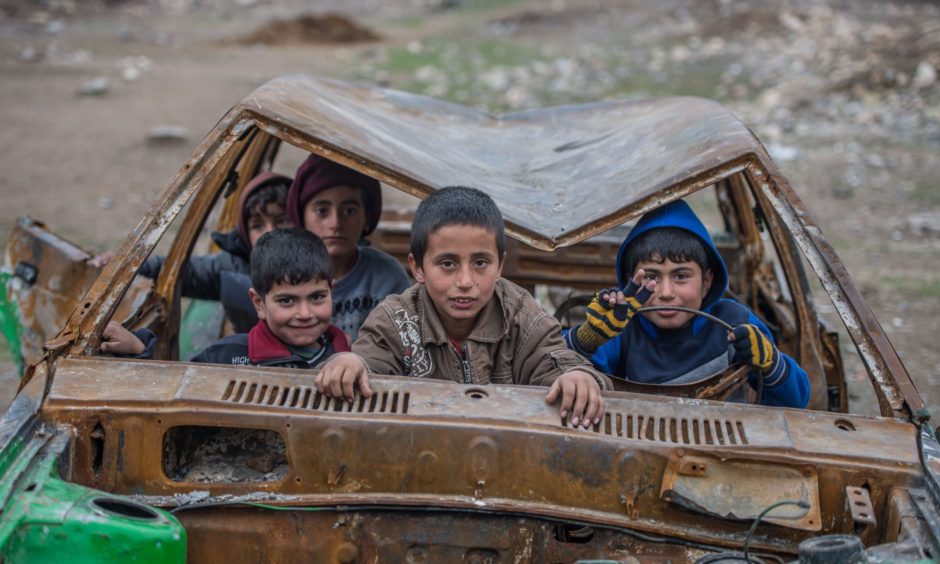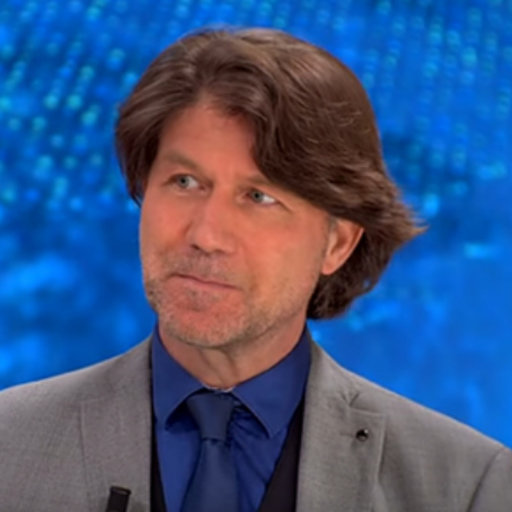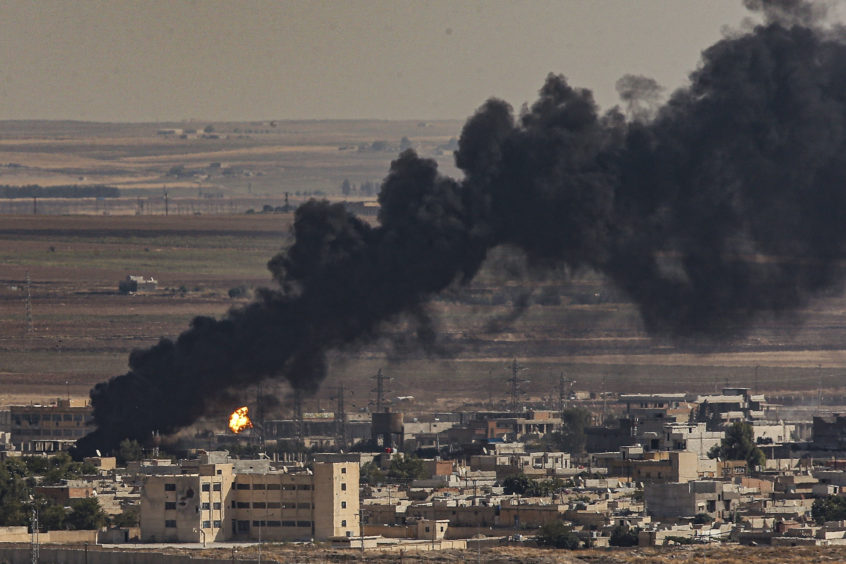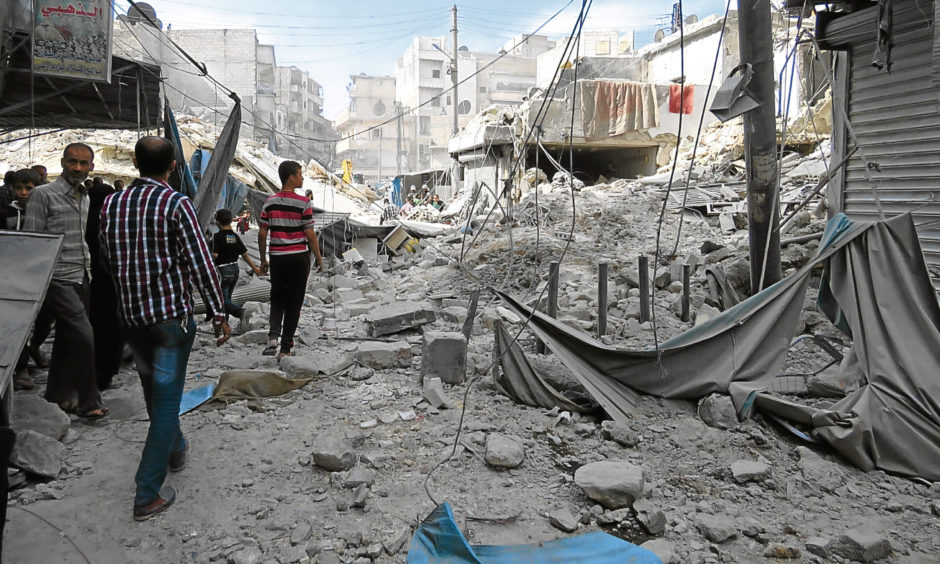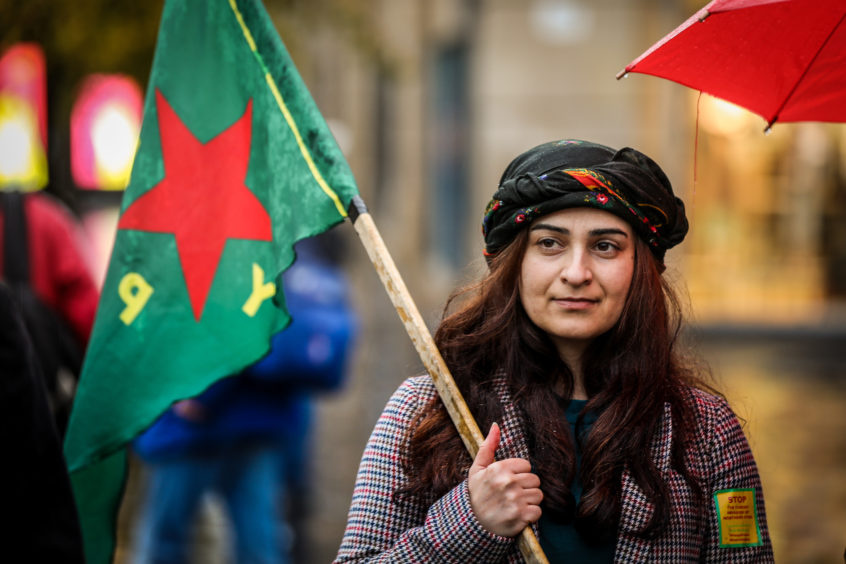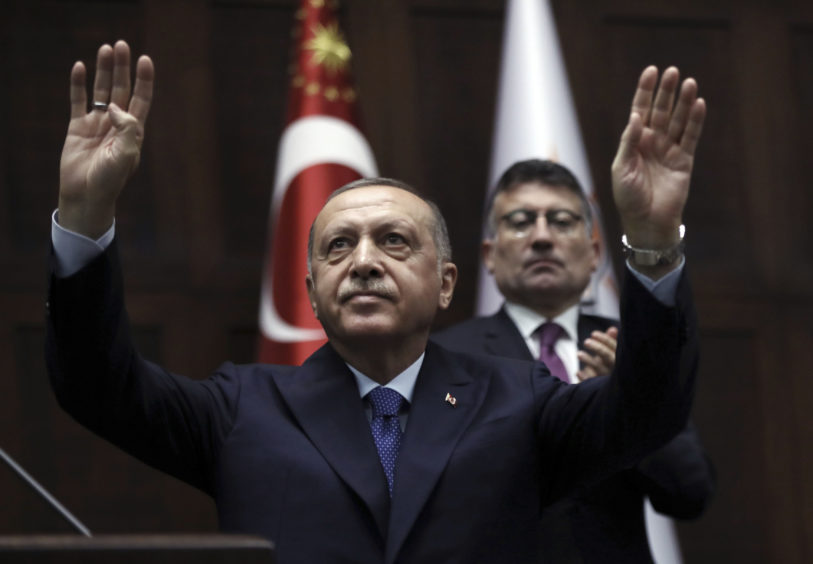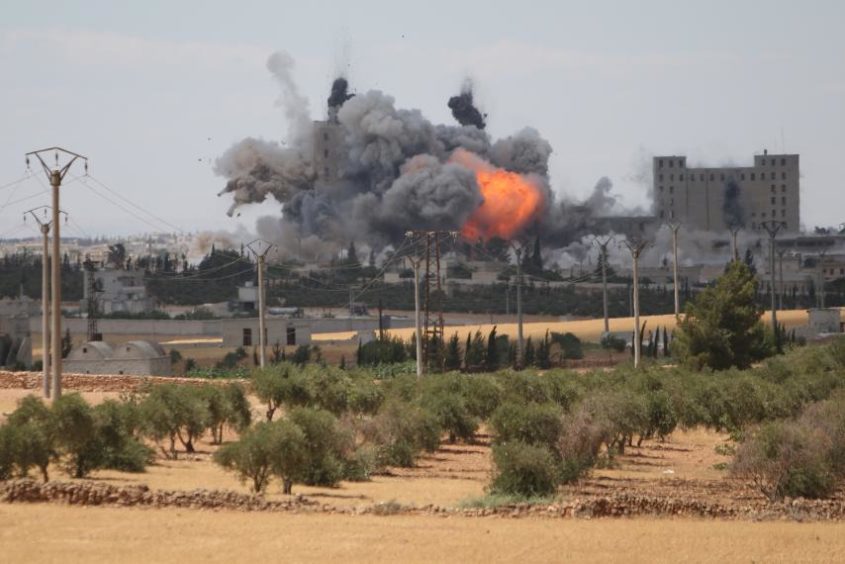As tensions continue between Turkey and Syria, Michael Alexander speaks to a Syrian-born expert from St Andrews University who fears the roots of the original conflict have been “cast aside”.
It has been described as a wound that refuses to heal in a civil war that continues to bleed lives and draw in neighbours to fight their own proxy battles.
Just as one battle line closes, another front opens – the latest twist involving US president Donald Trump and Turkey, with the Kurds in northern Syria paying the highest price under a Turkish onslaught.
America’s seemingly sudden decision to withdraw from Syria and Turkey’s decision to invade has led to a previously un-thought-of scenario whereby President Bashar al-Assad’s Syrian regime forces – aided by Russian and Iranian involvement – are now supporting the Kurds and a new lease of life has been granted to Islamic State.
But more than eight years after the Syrian civil war was unleashed by citizens taking to the streets in peaceful protest against President al-Assad’s regime, what irks Fife-based Syrian-born expert Dr Omar Imady most is that the reasons for Syria’s tragic implosion in 2011– and the search for a solution – seem to almost have been forgotten.
“What’s ironic for Syria after eight years of war is how suddenly the real ‘story’ becomes Turkey invading a sovereign country and on the other side ‘what is going to happen to the Kurds?’”, said Dr Imady, the deputy director and senior research fellow at the world-renowned St Andrews University Centre for Syrian Studies.
“Where is Syria in the debate? Syria and the Syrian people are almost not part of the story.
“It’s become so mutated in the way the story has evolved. Each one of these fragments has taken on a life of its own.
“It has become so distorted that the real story of why this all began is almost no longer relevant.”
Born to an American mother and Syrian father in Damascus in 1966, Dr Imady, 53, grew up in Syria before his parents moved to Kuwait where he finished high school.
After completing his PhD in Middle Eastern Studies in the USA, he moved back to Syria where, after finding it difficult to secure a teaching position where he could teach free of government scrutiny, he joined a United Nations development programme that was designed to empower Syrian peasants politically and economically.
It was while he was teaching at an American university in Jordan, however, that the Syrian war broke out and, as conditions deteriorated, he applied to join the staff at St Andrews University in 2012.
“Before that I would travel every weekend from the capital of Jordan to Damascus to see my family, my parents,” he said.
“But when the trouble began in March 2011, the roads started being blocked. Everything changed very quickly. It was dramatic. It was sudden, and it quickly became tragic.
“It began beautiful – young men and women from different religions protesting very peacefully for change. But by 2012 everything had changed. The government chose to ruthlessly crack down on them.”
With millions of Syrians killed and millions more displaced, injured and unaccounted for, Dr Imady said the war has effected everybody in Syria and beyond given the numbers of refugees.
His own family had lost a house, the cost of living was “astronomical” and his father’s nephew had been kidnapped and never found.
While it should be possible for Dr Imady to go back to visit his parents in Damascus if he wished, his father Muhammad Imadi – a technocrat and former Syrian government economy minister considered to have been the architect of Syria’s economic liberalisation in the 1970s/80s – has advised him not to return for his own safety.
What saddens him most as he observes his homeland from afar, however, is that even with the war less heated than it’s been for many years, Syria is “wounded almost beyond repair”.
“It’s not the Syria that used to be in any sense of the word,” he said, describing the involvement of six factional armies in Syria as a “theatre of the absurd” and lamenting the loss of Syria’s “beautiful and rich mosaic” of ethnic history.
“One of the most tragic thoughts that I get is that I used to travel these areas now destroyed – anyone could.
“Three o’clock in the morning – I’m not exaggerating – there was just about no place that you could not walk, where a woman alone could not walk. Fearing nothing really. It was a very different country.
“Now it is riddled on both sides. Every village has story of people who have been killed either by the regime, or by the opposition, or by both. There are all these festering wounds and nothing is being done to heal it.
“Even if everything was done to heal these wounds it would still be very difficult to achieve.”
Dr Imady is concerned about American foreign policy and the lack of drive by the international community “to really try and agree a settlement, an unequivocal transition, that can take Syria from where it is today to a different place”.
“The fact that this can be ignored – that the suffering of Syria and its people in this story can somehow be cast aside: I’m not in any way diminishing the story of the Kurds and the Turks – but this isn’t the real story,” he added.
If there’s “one ray of light”, however, he would say it came several weeks ago when the UN envoy to Syria announced that a constitutional committee had finally been agreed upon which is supposed to revise the constitution to prepare for a UN monitored presidential election in 2024 which would supposedly be the foundation of a new beginning.
“Of course we’ve heard this so many times, no one trusts this completely – but at least we have a committee that will hopefully take this somewhere,” he said, adding that when a framework exists where everyone – including the Kurds – feel Syria is their country, perhaps then they will feel more inclined to be part of it, rather than to want to split from it.
